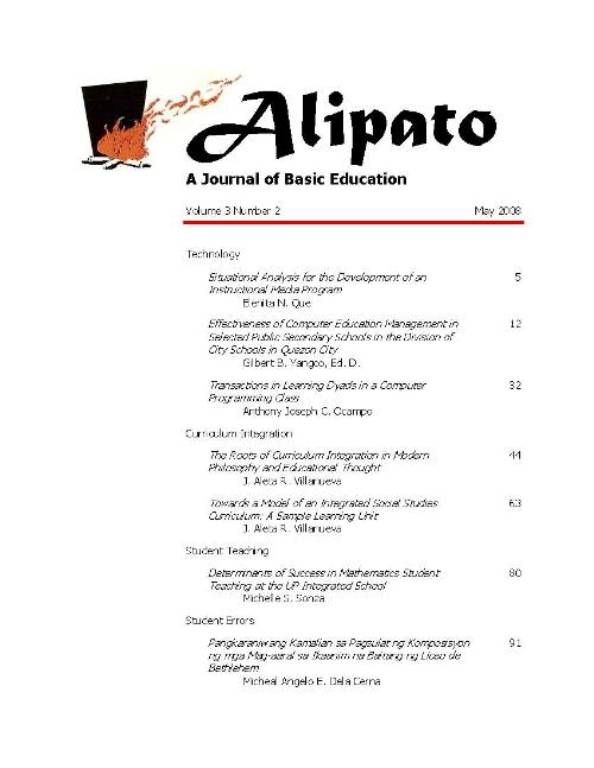Effectiveness of Computer Education Management in Selected Public Secondary Schools in the Division of City Schools in Quezon City
Abstract
This study aimed to determine the factors that predict the effectiveness of computer education programs in schools within the Division of City Schools in Quezon City, with the end in view of providing guidelines to school administrators and teachers for a much improved program implementation. Thirty-three principals, 52 computer education teachers, and 729 students in 33 schools served as research respondents. Data generated through survey questionnaires and interviews showed that the majority of these schools have a student population of 4,000 and below, with inadequate budgetary allocation as perceived by the principals. Most schools, however, have 10 students to one computer ratio, but the computer facilities as a factor was perceived by the principals to be adequate.
The principals were perceived to be very skillful in planning, organizing, leading, and controlling. The computer education teachers, on the other hand, were given a very satisfactory rating in their performance by administrators. Students also commended these teachers' mastery of the subject matter, possession of affective characteristics, utilization of effective teaching strategies, and showing of positive attitude toward computer technology.
Around 50% of the schools got scores above the mean in the computer education achievement test, whereas 61% of the students got a computer grade average of at least 86%. The schools’ computer academic contest participation and winning, however, range from 60.6% to 63.6%.
Based on the findings of the study, it can be concluded that better school computer facilities, a smaller school population, and a higher teaching competence would lead to a higher academic achievement on the part of students. It was also noted that the favorable attitude of computer education teachers toward computer technology, better organizational skills of principals, and enhancement of school computer facilities would increase the chance of winning in computer contests. Furthermore, better school computer facilities and improved leadership skills of the principals would enable students to get a higher grade average in their computer education subject.
Overall, better school computer facilities would lead to a higher academic achievement, an increased winning chance in computer contests, and a higher grade average of students in computer education.


